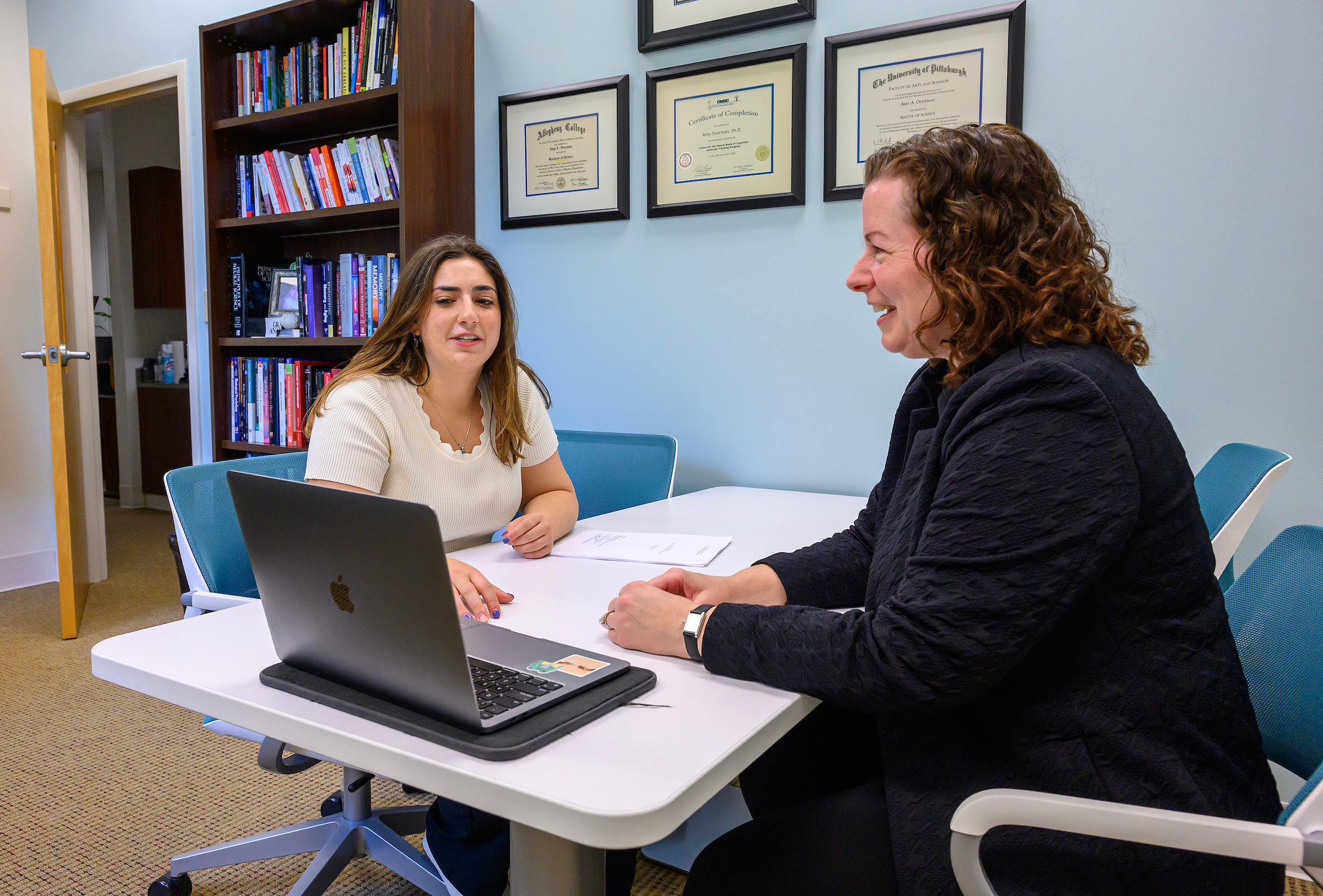Feintuch and her mentor, Professor of Psychology Amy Overman, are using eye tracking technology to study memory difference among people with autistic traits.
As an Honors Fellow and a Lumen Scholar, Lindy Feintuch ’24 has been able to pair her passion for biology with an exploration of developmental disabilities.
Her research uses eye-tracking technology to look at memory differences among people who have varying degrees of autistic traits. Feintuch helped coach a special education gymnastics team during her time in high school and when she arrived at Elon, she knew she wanted to pursue a research project that combined her personal passions with her academic ones.
“I just became interested in how learning differs for everyone, and as a biology major, I was interested in the science of why and how this was happening,” she said.
Feintuch is majoring in biology with a concentration in molecular biology and a minor in neuroscience. Her project is titled “Evaluating the Self-Reference Effect as an Encoding Strategy for Individuals Displaying Autistic Traits: An Eye-Tracking Study.” Feintuch is mentored by Amy Overman, assistant provost for Scholarship and Creative Activity and professor of psychology. The pair have spent the last two years designing a behavioral experiment in the form of a memory exercise. They also focused on recruiting participants and administering the experiment on a computer with eye-tracking software below the test.
Feintuch has been able to pursue this in-depth research with Overman as her mentor through Elon’s Lumen Prize program. The Lumen Prize is Elon’s most prestigious award for undergraduate research and awards scholars a $20,000 scholarship to support a chosen research project and allows the scholar to work closely with a faculty mentor on that project for two years. Each year, 15 rising juniors are named Lumen Scholars and conduct research that often produces conference presentations and publications.
Feintuch knew that applying for the Lumen Prize would allow her to have access to the resources necessary to complete her research at the highest level possible. “I wanted to maximize the opportunities that I could have at Elon,” she said. “I wanted to be the best version of myself and really go after what I wanted to do in life.”

Under the guidance of Overman, Feintuch has been able to meet other academics in her field, become a stronger and more critical writer, and think deeper both in and outside of the lab.
“Lindy is intelligent and consistently exceeds goals that she sets for herself or we set together,” Overman said. “However, the qualities that truly make her stand out are her willingness to work to understand the perspectives of others, especially the people who participated in her research and the broader autistic community, and her willingness to lean into being a leader on her project and beyond.”
Feintuch and Overman have presented their findings at conferences such as the Gatlinburg Conference on Research and Theory in Intellectual and Developmental Disabilities. Feintuch hopes to continue her education after graduating from Elon in the spring to eventually pursue a career in genetic counseling, specializing in assisting individuals with neuro-developmental disorders.
“Making connections with so many people and really building on connecting with professors and professionals in all different positions has allowed me to approach my post-Elon experience with a lot of open-mindedness,” Feintuch said. “I can be really successful in a lot of different fields because I’ve been able to engage in lots of different activities during my time here.”



